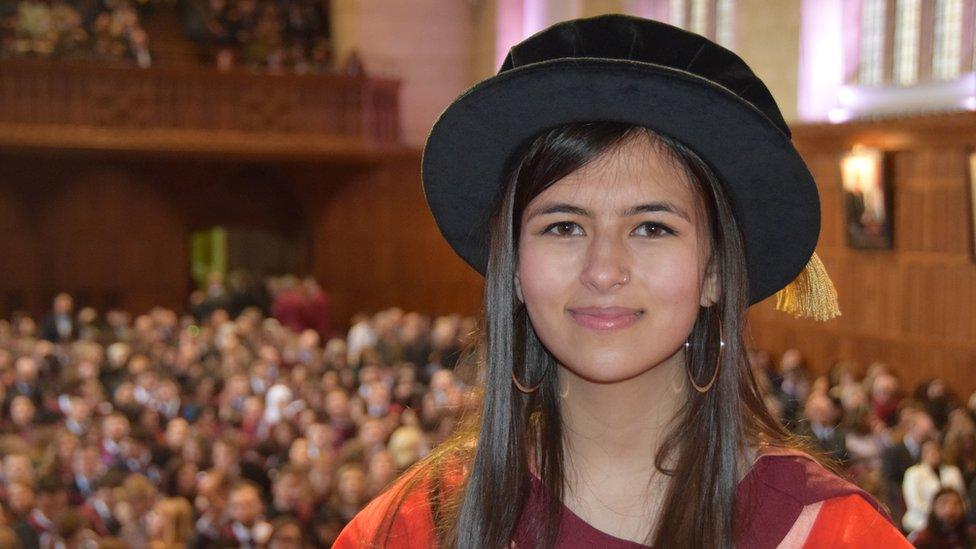Young wildlife lovers head to university to tackle nature crisis
- Published
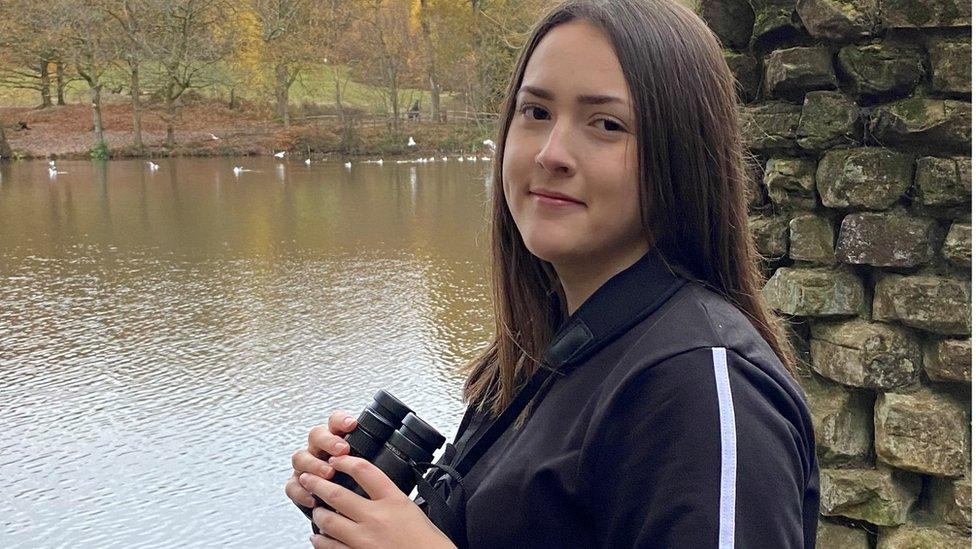
Mya Bambrick, 18, hopes to show birdwatching can be enjoyed by people from all walks of life
A new generation of social media-savvy wildlife lovers have been challenging perceptions that teenagers are switched off from the natural world. Now they are off to university with high hopes of protecting the things they love.
In the early years of secondary school, Mya Bambrick avoided telling classmates about her passion for birdwatching.
"I thought people might think I was a bit weird, because there was that stereotype that it's for old, white men," she said.
It was a lonely pursuit, until she discovered a community of like-minded teenagers on social media.
"I got on to Twitter and found a whole group of young people that were just as passionate about wildlife as me," she said. "It was amazing."
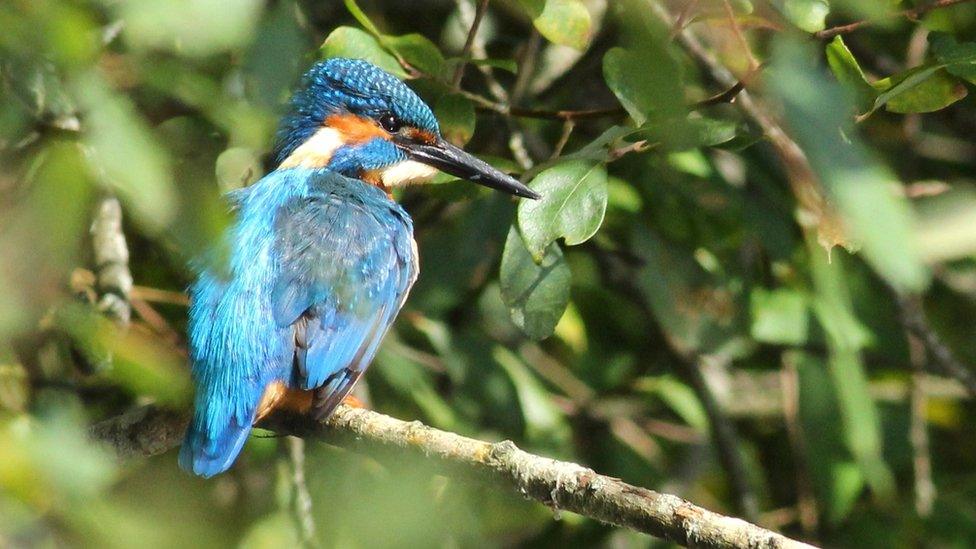
Photographing vibrant kingfishers helped to solidify Mya Bambrick's love of nature
The 18-year-old, from Crawley, West Sussex, is one of a cohort of young nature lovers about to follow their passions to university, with the ultimate aim of preserving the things they hold dear.
"I want to make a positive change," she said. "You can see the state of the wildlife and climate crisis, and I feel a responsibility to make a difference."
Scientists say a growing body of evidence suggests increasing people's engagement with nature can "help deliver pro-environmental attitudes and behaviours", external, which will be necessary to reduce emissions and tackle other threats to wildlife.
But research has repeatedly shown, external that young people's connection with the natural world drops off sharply between the ages of 10 to 15 and takes more than a decade to recover.
A survey by Natural England of nearly 4,000 people attempted to measure levels of engagement with nature by asking participants how they felt about a series of questions, including "I always find beauty in nature" and "being in nature makes me happy". It found that levels of "nature connectedness" dropped by 25% as children entered their teenage years.
Allow Instagram content?
This article contains content provided by Instagram. We ask for your permission before anything is loaded, as they may be using cookies and other technologies. You may want to read Meta’s Instagram cookie policy, external and privacy policy, external before accepting. To view this content choose ‘accept and continue’.
Faye Vogely, the British Trust for Ornithology's youth engagement manager, believes young people's view of the natural world is shifting.
The rise of organisations like Flock Together - a birdwatching group for people of colour that has collaborated with major fashion labels like Uniqlo and Timberland - showed an appetite to "explore nature in a more social way", she said.
Where once young people may have felt that "nature is lame", today more and more people are realising "there's a real mental health benefit and there's a real social element to this," Ms Vogely added.
But she warned that a "lack of representation of ethnicity, religion and lower-income backgrounds" among birders and naturalists could make it feel "inaccessible" for some young people.
Ms Bambrick, who will study ecology and wildlife conservation at Bournemouth University, hopes her example proves that anyone can enjoy nature and science.
"I'd like to show that a young woman, who has not come from a particularly privileged background, living in a town, can be into it and can make a career of it," she said.
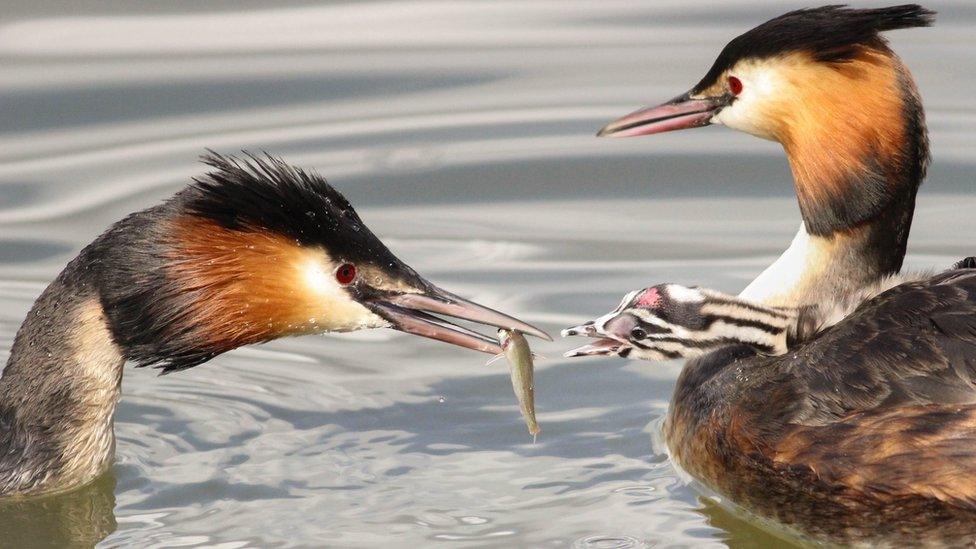
A great crested grebe family photographed by Mya Bambrick
Her interest in the natural world began with trips to feed geese at an urban park, but it grew into something closer to obsession, she says, after receiving a camera for her tenth birthday.
Hours spent patiently waiting were followed by an adrenaline rush as a "bright and vibrant" kingfisher flew into sight.
Today, she has come to appreciate the wider benefits of spending time outdoors.
"It's really good for your mental health, for your wellbeing, it makes you relaxed," she said.
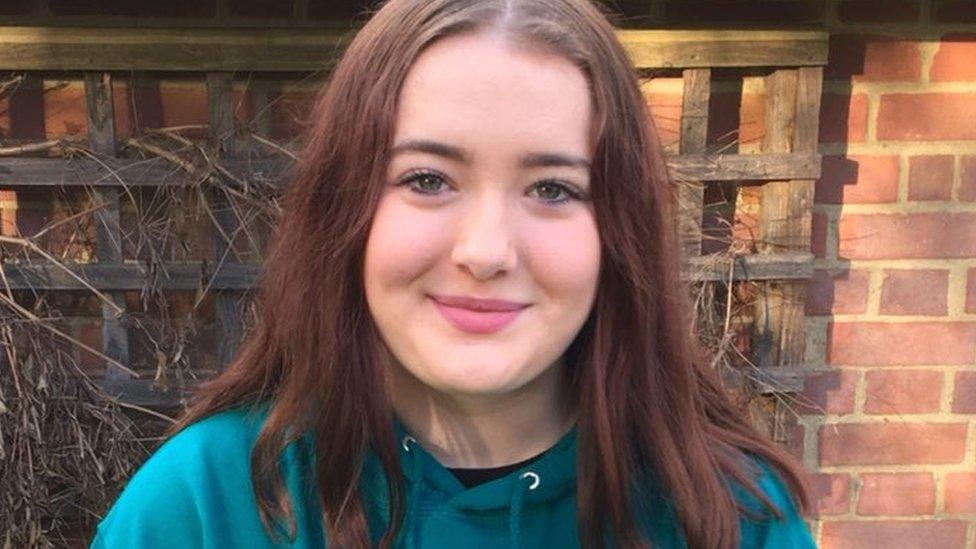
Megan McCleverty believes attitudes to birdwatching are changing
Megan McCleverty began birdwatching with her parents while in primary school, but "didn't really know any other young birders" until finding a community online about five years ago.
At secondary school in Buckinghamshire, she would sometimes discuss her birdwatching plans with classmates, but said: "I can't really say the comments were that nice."
In recent years, however, as her peers grew more aware of climate change, attitudes have changed, she said.
"Those same people have now gained an interest in it. They've been asking me more about the stuff I do, and I've taken some of them volunteering with me," she said.
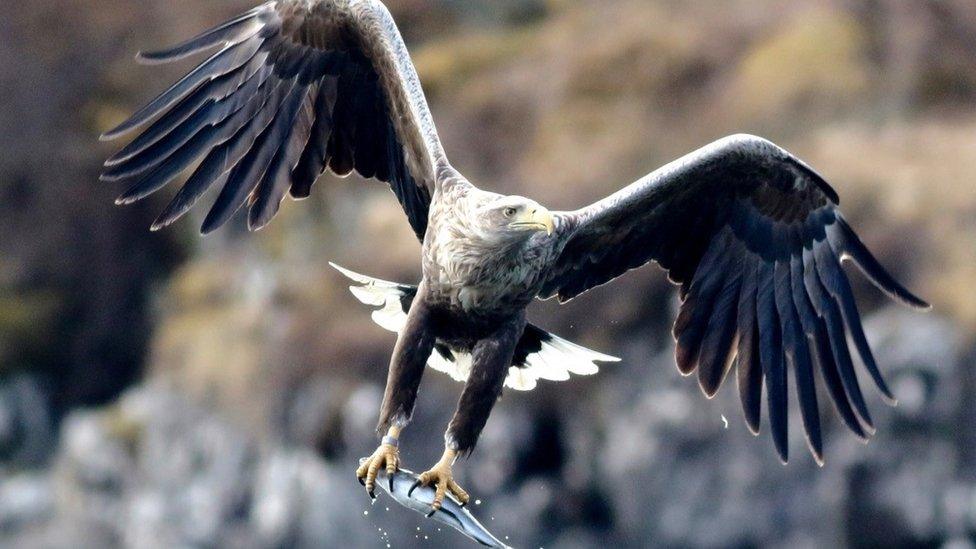
Megan McCleverty photographed this white-tailed sea eagle with its catch off the Isle of Mull
The 18-year-old, who will study zoology at the University of Bristol, said she had become "increasingly aware of the challenges the natural world faced" after joining Twitter.
She felt emboldened by watching other young people speak out against climate change and biodiversity collapse.
"You see other people your own age advocating for the same thing and it allows you to feel like you have a voice to advocate for change and to be a voice to shape your own generation," she said.
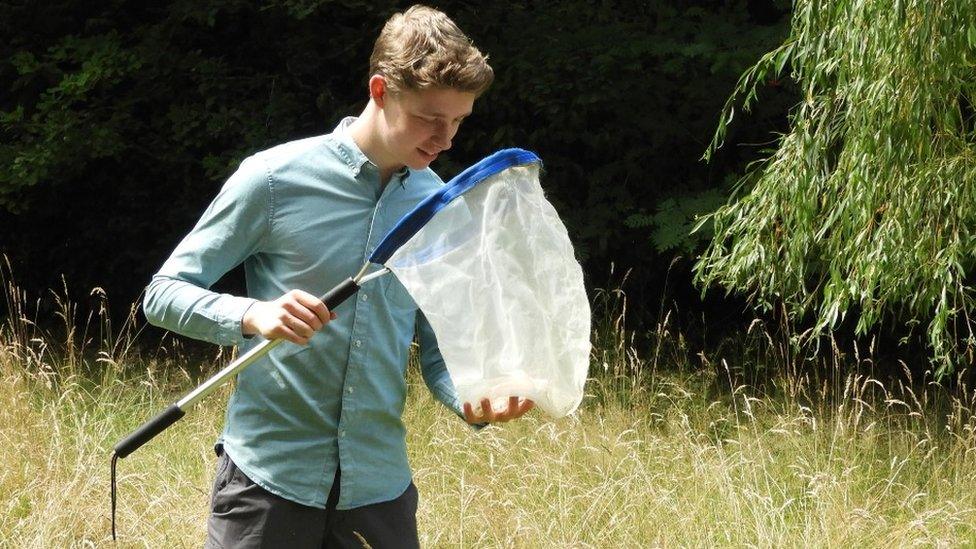
James McCulloch has discovered a species of invertebrate never before seen in England
James McCulloch's fascination began on family holidays in South Africa, watching iconic species like giraffes and elephants.
But back home in Surrey, he began to narrow his scope.
Finding and recording invertebrates became his focus, relishing the challenge that identifying these tiny animals posed. He began contributing to "citizen science" programmes, in which members of the public help to document the natural world around them.
He went on to discover a species never before seen in Britain.
"It was just in a rhododendron bush maybe ten metres from my backdoor," he said. "It's discoveries like those that really keep me interested."
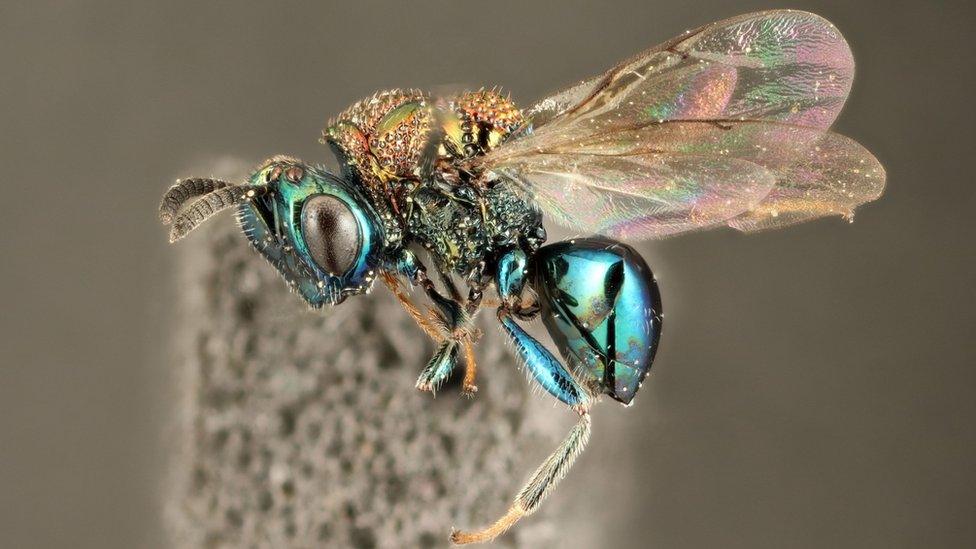
A metallic-coloured wasp photographed by James McCulloch
The 18-year-old, who will study biology at Merton College, University of Oxford, believes lockdown has helped others to discover wildlife on their doorsteps.
"I've heard that from people at school that weren't previously interested in wildlife," he said. "Going on daily walks almost out of necessity has brought them closer, more in touch with the natural world."
He hopes to introduce more young people to citizen science and harness a growing awareness to help record the natural world.
"Practically all conservation relies on these biological records," he said. "With such a biodiversity crisis that's looming, or already happening, if we can pick up the pace of citizen science even more, then I think that would be hugely helpful."

Follow BBC South East on Facebook, external, on Twitter, external, and on Instagram, external. Send your story ideas to southeasttoday@bbc.co.uk.
- Published30 September 2020
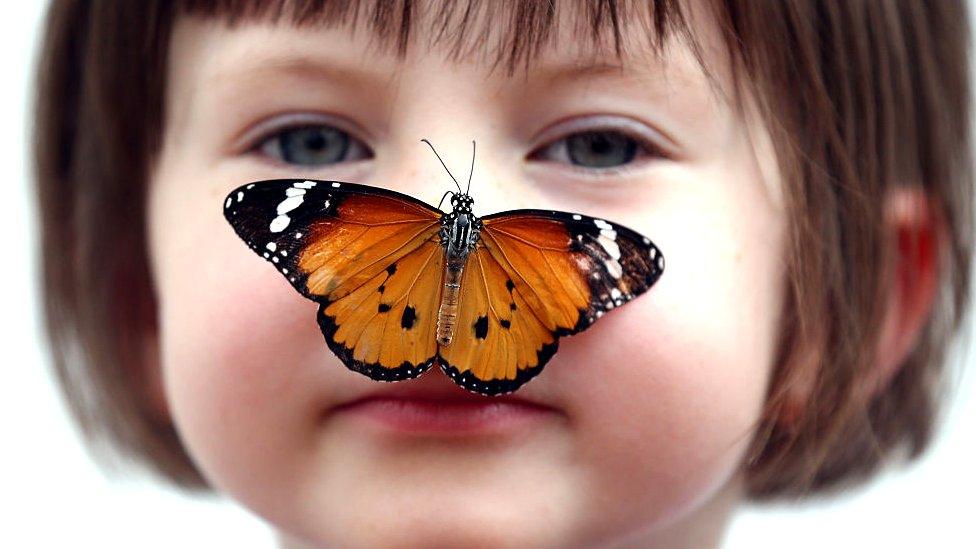
- Published14 September 2021
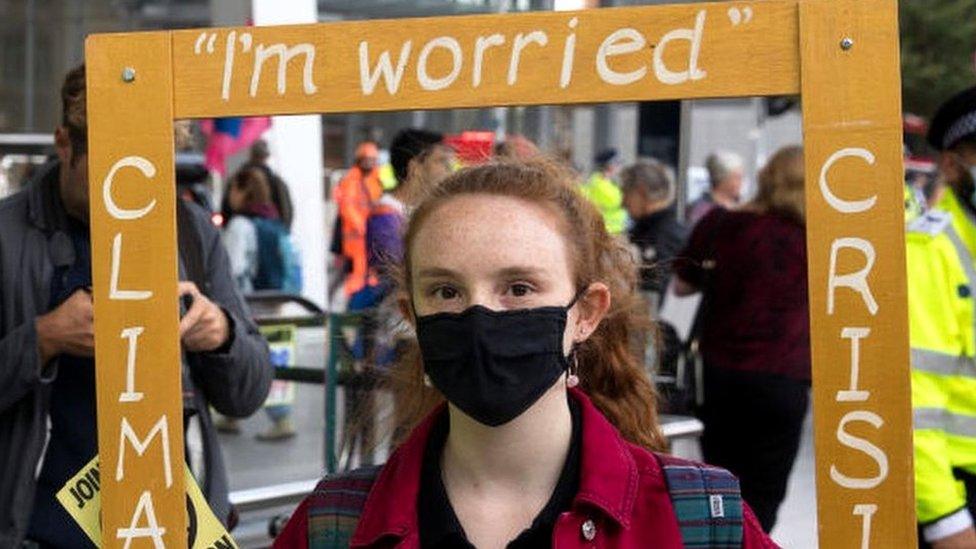
- Published20 February 2020
